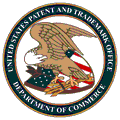
 Based on previous and very recent posts about Red Hat, Sun and Firestar [1, 2] (c/f older analysis in [1, 2, 3]), it could be concluded that the main loser was software patents. The world learned that:
Based on previous and very recent posts about Red Hat, Sun and Firestar [1, 2] (c/f older analysis in [1, 2, 3]), it could be concluded that the main loser was software patents. The world learned that:
The Linux vendor has been receiving plaudits and its legal team patting themselves on the back for defusing a ticking time bomb of claims against its JBoss middleware partners and customers.
If Sun Microsystems has got its way, though, Red Hat could have become just another victim of patent poker in the US and left customers, partners and itself open to future claims.
Sun has succeeded in overturning the Firestar patent in question - "Object model mapping and runtime engine for employing relational database with object oriented software" - after it approached the US Patent and Trademark Office (USPTO), claiming the existence of prior art. Firestar had brought the claim against JBoss but this passed to Red Hat once it acquired the open source middleware provider in 2006.
The thing I like most about Mono is how easy I can delete it and anything associated with it from my system. Every time I do an install, it is the very FIRST thing that I remove even before doing package updates. I cannot justify having anything remotely connected to Microsoft on my machine no matter what Mr. DeCaza says. Want to sleep with the enemy, fine but don't complain when you get thrown on the rubbish heap when you are of no further use to MS.
Again, much kudos to Sun for (a) finding some prior art to invalidate the patent and (b) nobly sharing it with its rival, Red Hat, in a spirit of solidarity. But what this does reveal is that here we have not one but *two* companies being forced waste much effort and much money to get somebody's claimed intellectual monopoly struck down for the good of the free software (and non-free software) world. Wouldn't it have been better if the patent had never been awarded in the first place?
[...]
What's particularly heartening is that those words appeared in the Wall Street Journal, hardly a bunch of sandal-wearing hippies. And the number of respected voices joining in is starting to increase. Here's what Professor Joseph Stiglitz, a 2001 Nobel Laureate in Economics, had to say on the subject:
Patent monopolies are believed to drive innovation but they actually impede the pace of science and innovation, Stiglitz said. The current “patent thicket,” in which anyone who writes a successful software programme is sued for alleged patent infringement, highlights the current IP system’s failure to encourage innovation, he said.
Bessen and Meurer propose requiring that applications for software patents be required to describe their inventions in greater detail (known as "enablement" in patent jargon). They express sympathy for a formal prohibition on software patents, but ultimately do not endorse that reform out of fears that defining software patents would prove too difficult.
Reading Patent Failure makes two things clear. First, the patent system is in desperate need of reform. Second, it is extremely complicated, and it is therefore difficult to predict the results of any given reform.
Sure enough, a legislative fix is now on the way, in the form of H.R. 6362, sponsored by the chairman of the House IP committee, Howard Berman, D-CA. The bill will require the Secretary of Commerce to make these appointments in the future, together with the Director of the USPTO. It also creates a retroactive defense to any challenges of the 40-odd judges who were appointed "illegally," IPO Daily News reported on Friday.
A US law professor has uncovered a constitutional flaw in appointing judges who decide patent appeals and disputes, which could undo thousands of patent decisions concerning claims worth billions of dollars.
The basic point John F. Duffy, who teaches at the George Washington University Law School, has raised does not appear to be in dispute. Since 2000, patent judges have been appointed by a government official without the constitutional power to do so.
“I actually ran it by a number of colleagues who teach administrative law and constitutional law,” Duffy said, recalling his own surprise at finding such a fundamental and important flaw. He thought he must be missing something. “No one thought it was a close question.”
Rather that directing the lawsuit at the same defendants as before, the RIAA directed it at John Doe (a defendant to be identified later), therefore obtaining a new judge ... who may not be so strict about the "making available" clauses.
Nice move, RIAA.
The Pirate Party of the United States took a different position. "Being the lead counsel in a multi-year campaign of extortion, pretexting, and sham litigation should not be rewarded with a seat in any court, except perhaps as a defendant," said the party's chairman, Andrew Norton.
![]() None of this is too exceptional. Just watch what McCreevy did for Hollywood the other day. Let's face the fact that even the legal system can be quite corrupt. Can it be taken to court or would that be recursive? ⬆
None of this is too exceptional. Just watch what McCreevy did for Hollywood the other day. Let's face the fact that even the legal system can be quite corrupt. Can it be taken to court or would that be recursive? ⬆
“Did you know that there are more than 34,750 registered lobbyists in Washington, D.C., for just 435 representatives and 100 senators? That's 64 lobbyists for each congressperson.”
--CIO.com